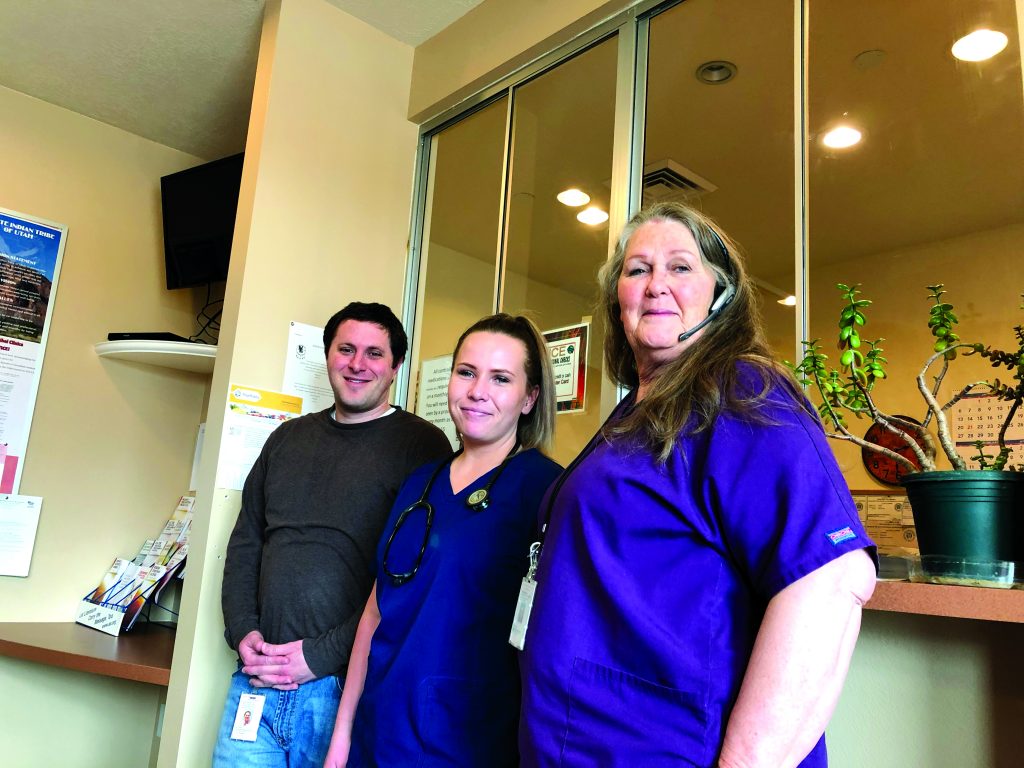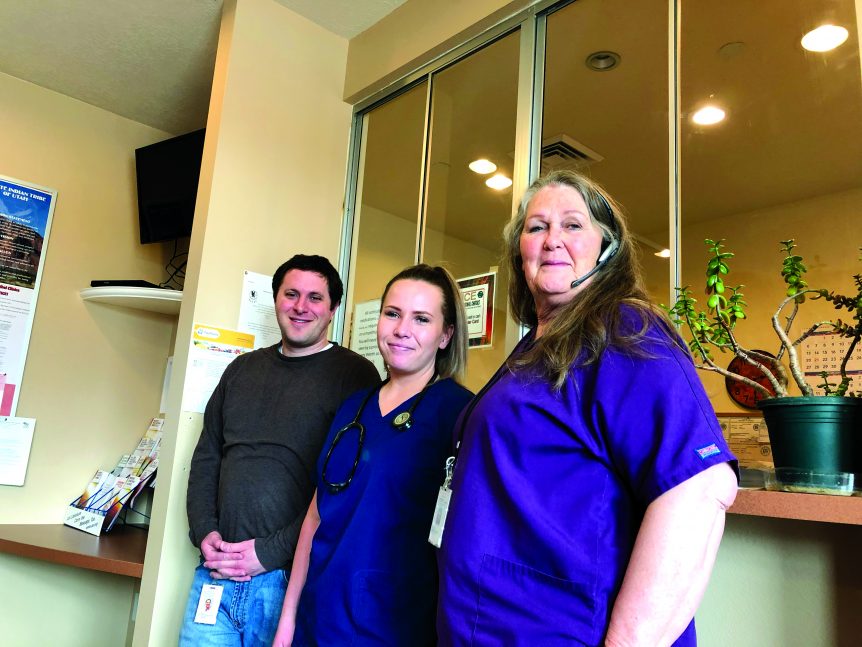KANOSH, UT | by Matthew Ward | March 13, 2019
Original article can be found at: http://www.millardccp.com

Kanosh health facility open to Millard, Sevier residents
An unlikely place to find relief from sky-high medical and prescription drug costs sits just outside Kanosh, tucked away amid a strip of homes along Reservation Road.
The Four Points Health clinic—a sign on the building still refers to it as the Kanosh Community Health Center—offers an array of services, from mental health counseling to dentistry to regular medical check-ups.
The rebranded clinic is one of four health centers owned and operated by the Paiute Tribe of Utah.
But, the clinic is not just open to Native Americans. A special federal grant allows the Kanosh clinic to serve Sevier County and Millard County residents as well.
Lora Tom, a community outreach manager for Four Points, said as much when she made a presentation to the Fillmore City Council last week.
“One of the reasons why we are here this evening is to let you know about our health centers. They are uniquely placed on reservations. But we want folks to know that we serve the community, the entire community,” she said. “We want to provide good quality care. And we want you to know as neighbors.”
All of Four Points’ facilities are located on reservations except for a new 12,000-square-foot facility that opens in mid-March on Richfield’s Main Street. The other clinics are located in Cedar City and Shivwits.
Tom said she and other representatives of the Kanosh clinic are going to nearby towns, big and small, to let people know there are more and cheaper options for medical treatment available to Millard County residents.
“A lot of folks don’t really know about the types of services we provide,” she told Fillmore City Council members, some of whom were noticeably surprised by the pricing available at the Kanosh facility.
Richard Persons, clinical director at Four Points, said the company’s membership in a federal 340B Program, allows it to pass federal savings on both generic and brand-name drugs along to consumers. The program is administered by the Health Resources & Services Administration (HRSA), an agency of the U.S. Department of Health and Human Services.
“I’ll knock the socks off anybody,” Persons said. “It’s amazing. It will blow your mind the price of medications.”
Persons, a certified physicians assistant, said patients who need a popular blood thinner might pay as much as $1,200 a month for it. Through the Kanosh clinic, however, that same patient might at most pay $150 for the same monthly supply of the drug. Similarly, a diabetes drug that can cost patients $350 to $400 a month, costs the clinic only 15 cents, a huge savings which can pass to consumers.
“A diabetic will look at us and ask, you can really do this? Is this legal? It’s all legal. It’s all legit,” Persons said. “An average diabetic spends between $500 and $600 a month just on medications. We can cut that cost from $500 or $600 to about $100 to $125 a month. That is a huge savings for any family.”
Persons said the Kanosh clinic treats all types of patients, from pediatric to geriatric.
“We’re open to anybody and everybody even though we are located on reservations. We accept every insurance and no insurance. If you have a high deductible, you can go on a sliding fee,” he said. “Most people qualify for a $20 visit. That includes a visit to see the doctor and if prescriptions are required they can be sent.”
The clinic even has a voucher assistance program with Intermountain Healthcare to defray costs associated with lab tests and x-rays, or other types of imaging that may be needed.
Four Points offers primary care services through three doctors who supervise the clinics and see patients once a month.
The doctors are Steve Newman, Drew Polson and Michael Bulloch. They are able to refer patients to specialists when necessary, Persons said.
So far, the number of patients being seen at the Kanosh clinic is lower than average. So wait times are almost non-existent and patients get more time with medical providers.
“David is seeing about 12 to 14 a day. So we’re below average,” Persons said, referring to the clinic’s new full-time medical provider, David Morgan. “The national average of a provider seeing in the clinic in an 8-hour shift is a minimum of 18 a day. But also, that’s an awesome benefit. We have the time to sit down with our patients and explain to them what is going on.”
Morgan, a certified physician’s assistant, said he began work in the Kanosh clinic in January.
“I love being here and hopefully I am here a long time,” he told city council members.
The Kanosh clinic is open Monday through Friday from 8:30 a.m. to 5 p.m. It closes for lunch from 1 p.m. to 1:30 p.m.
Share this Post













